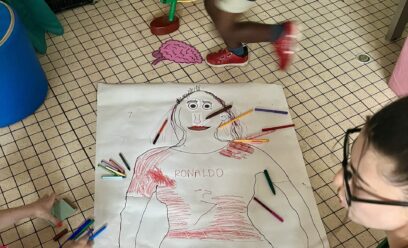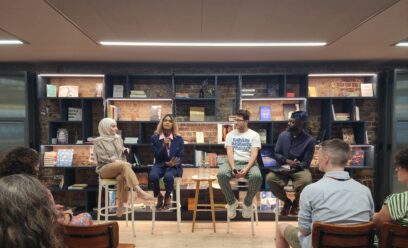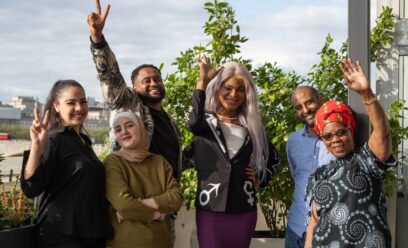Celebrating women leaders with refugee and migration experiences for International Women’s Day 2022
Posted by IMIX on March 8, 2022This year we spoke to women with lived experience of migration and/or forced displacement who work in the charity sector and help others in similar situations.
They discuss the importance of women leaders with lived experience and speak out about the biases and challenges they have overcome, in line with year’s International Women’s Day theme of #BreakingTheBias.
From Grace, a domestic worker who is a frontline campaigner for migrants’ rights, to Marianna, who started a community group to empower Eastern European women, these activists and leaders show why people with lived experience are essential if we as are to succeed as a sector.
1. Grace Nine: ‘I could easily say while holding their hands “I survived, and you will too.”‘
Grace Nine is a Union Representative at The Voice of Domestic Workers (VoDW) and a frontline campaigner fighting for the rights of migrant domestic workers in the UK.
‘Working in a very isolated private home, I was threatened by my employer that I would be arrested by police if I escaped and talked to people. I was afraid to talk to anyone because I was in constant fear of being arrested and deported. At that time, I didn’t know my rights and I didn’t know where to seek help.
‘I would say my lived experience was an advantage because I could relay better to my fellow domestic workers who have been through the same. I could easily say while holding their hands, “I am here, I survived, and you will too. You have taken the first step; it will be rough but ahead there will be light.’’
‘I was fortunate to find VoDW where I could access education, training, and legal support. As VoDW is run by and for migrant domestic workers, we are the voice of our rights and we campaign in the front line.
‘Today, 8 March is International Women’s Day. I will be with my fellow members at VoDW in the parliament to deliver flowers to peers of House of Lords to show our gratitude and lobby them to keep our rights and protection in the Nationality and Borders Bill.’
2. Julia Karuiki: ‘You are only as good as how you perceive yourself.’
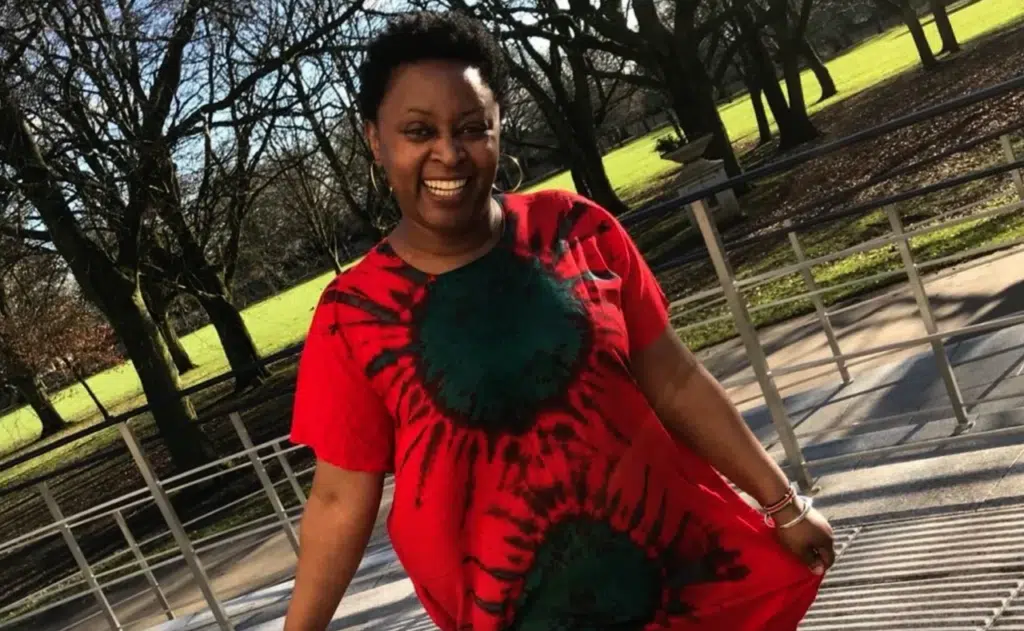
Julia is an Integrate Coventry Employment Officer at Coventry Refugee and Migrant Centre, where she advises clients on securing jobs. As someone who sought safety in the UK, she speaks about the biases she has overcome in the workplace.
‘Before I got my refugee status, I volunteered as a caseworker. I was once confronted by someone who asked me what my status was in the UK. When I said I was an asylum seeker the response was, “You don’t look like an asylum seeker.”
‘There is an assumption and a stereotype of how asylum seekers should be and present themselves. Clients would often ask to be seen by a white caseworker as they didn’t believe I was qualified or educated enough to be their adviser.
‘Having gone through the asylum system, not being able to work was definitely challenging as I started working at a very young age. Feeling dependant on little hand outs definitely was not something I had ever experienced from my home country.
‘It took a toll on my mental health and I felt very isolated and unworthy. Feeling that I can help someone else to not feel as low as I felt definitely makes my job worthwhile
‘If you have a goal and a dream, chase it. You are only as good as you perceive yourself, not what others perceptions of you are.’
Read more about Julia’s story.
3. Marianna Solodcaia, founder of the Vera Group: ‘It is important to have women who are visible and active in the community.’
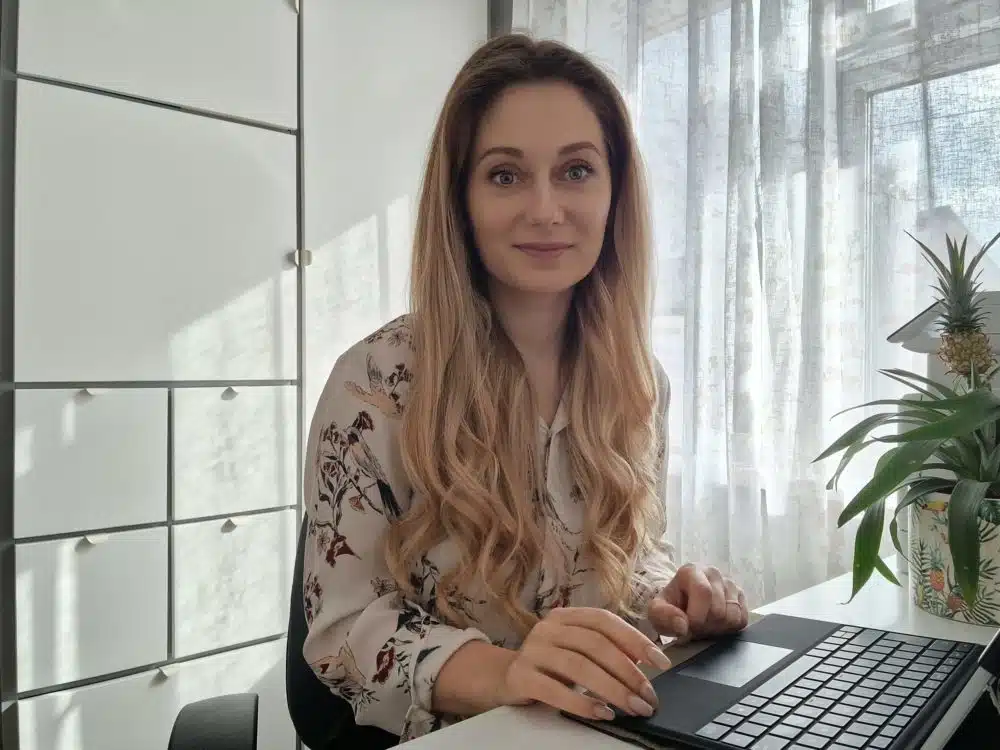
Marianna is an Integration Project Officer for Walsall Council and founded the Vera Group, a support group for women with Eastern European backgrounds. She moved to Walsall from Moldova six years ago.
‘I think for me, it is important to have women who are visible and active in the community. Because then other women see how you break those barriers. They see how you change or overcome your situation if you are not happy.
‘As I said, I’ve gotten many comments by women who were where I was when I first came here saying things like, “If you could do it, I could do it too.”
‘So women who feel like they didn’t have the language skills or the confidence to complete qualifications or apply for jobs can see someone like them break those barriers. Having this example really helps to change their view.’
4. Alphonsine Kabagabo, Director of Women for Refugee Women: ‘To put it simply, I can see myself in the shoes of the women we work with very easily. I identify with them.’
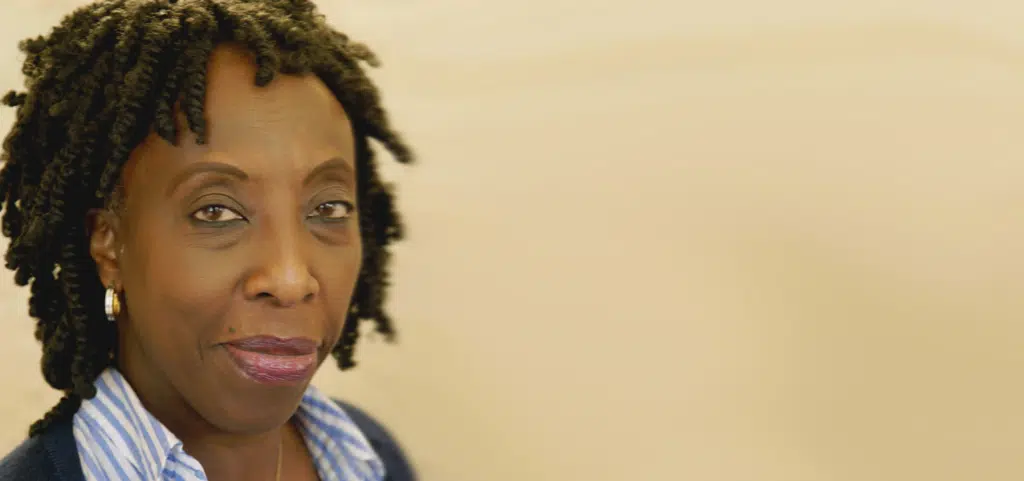
As a survivor of the Rwandan genocide, Alphonsine is one of the few women with lived experience leading an organisation in the refugee and migration sector
‘To put it simply, I can see myself in the shoes of the women we work with very easily. I identify with them. When we are working on programmes and activities, I think, “That was me 25 years ago, and these are the sorts of activities I wanted to see when I was in that situation.” So, it really gives me more energy, more motivation.
‘But I was a refugee 25 years ago. So many things in the asylum system have changed since then. And I was aware of that. I joined Women for Refugee Women during the pandemic, so it was a difficult time to do it from my bedroom. But when I came in, we put together a focus group of women who are in our network to create a deep understanding of their needs. Who are they? What do they want and need? What excites them?
‘And it’s about asking, “What difference do you want us to make with you? Not for you, with you. How are we going to make a difference together?”’


